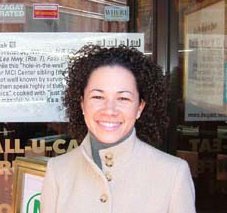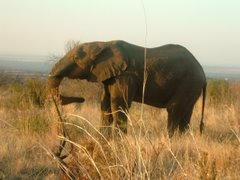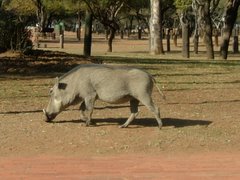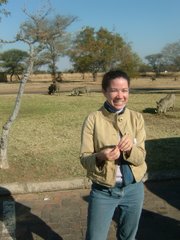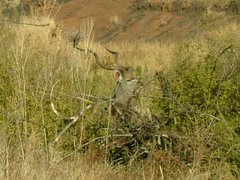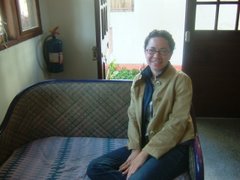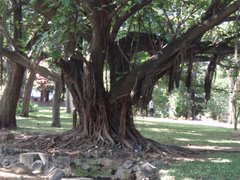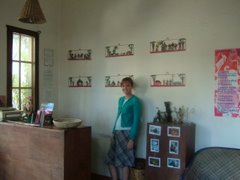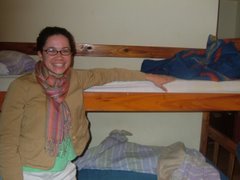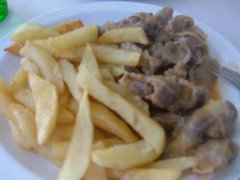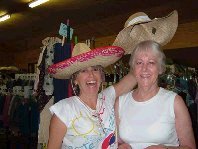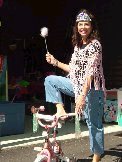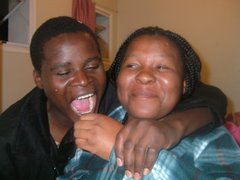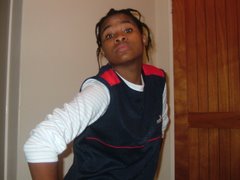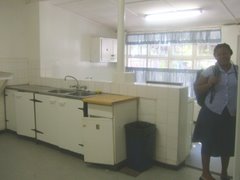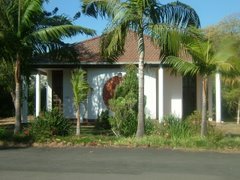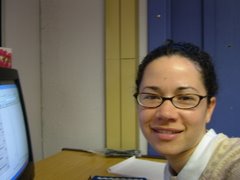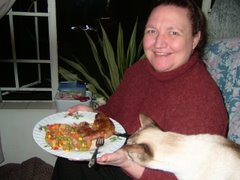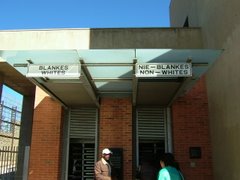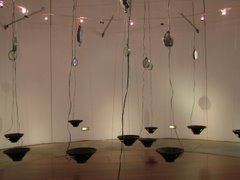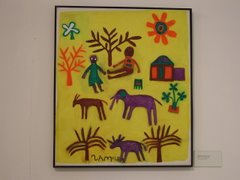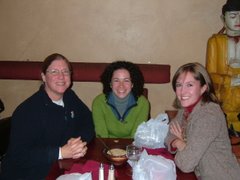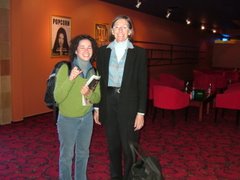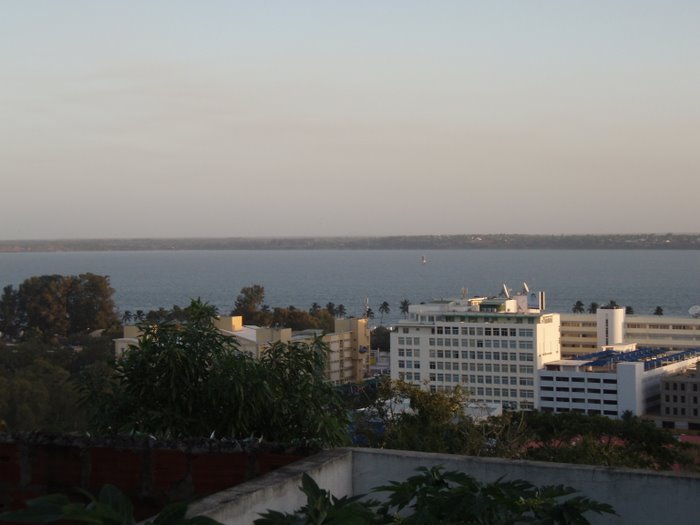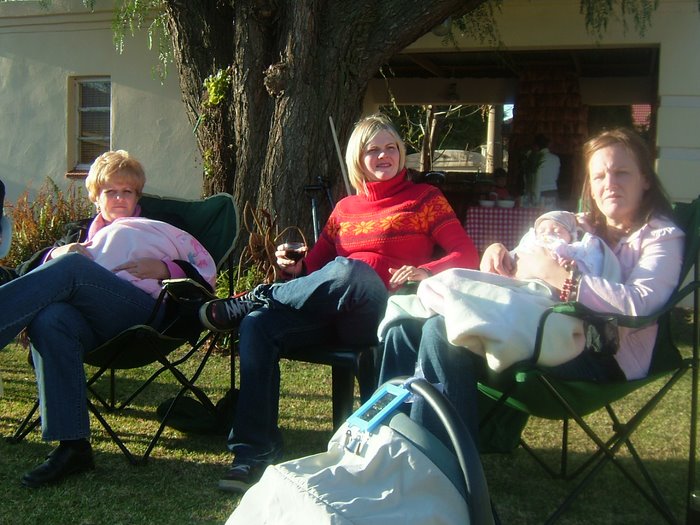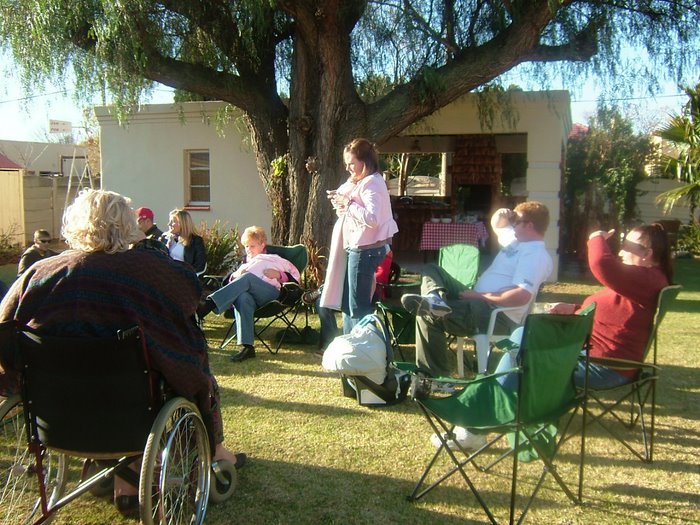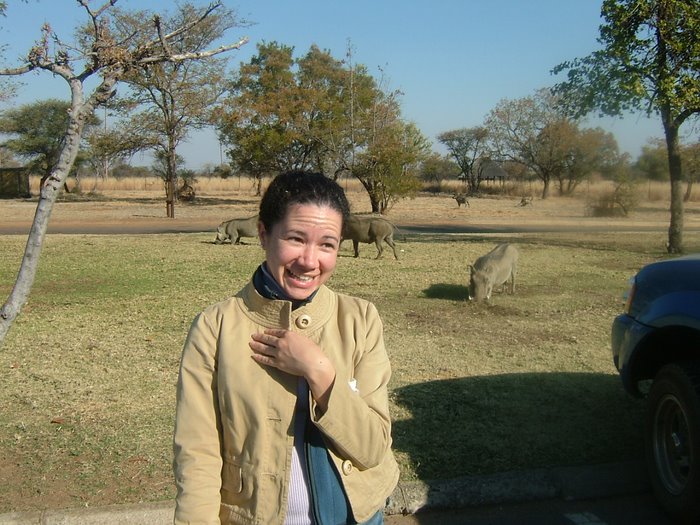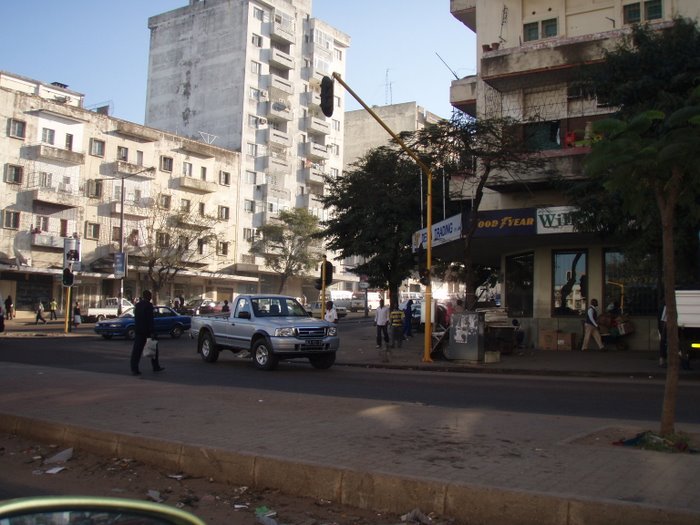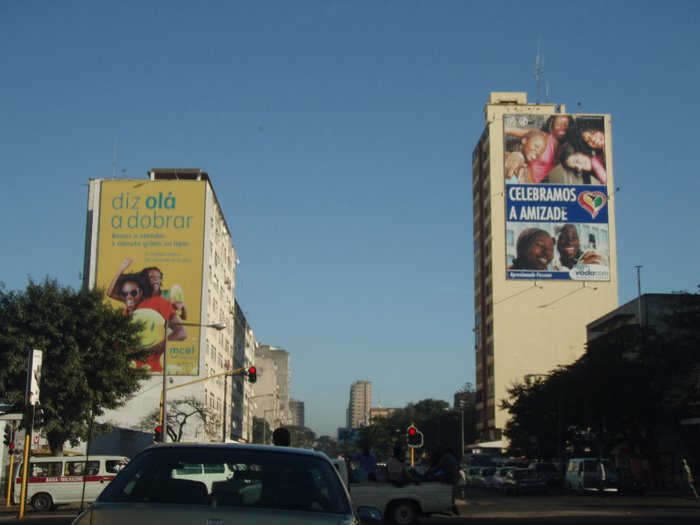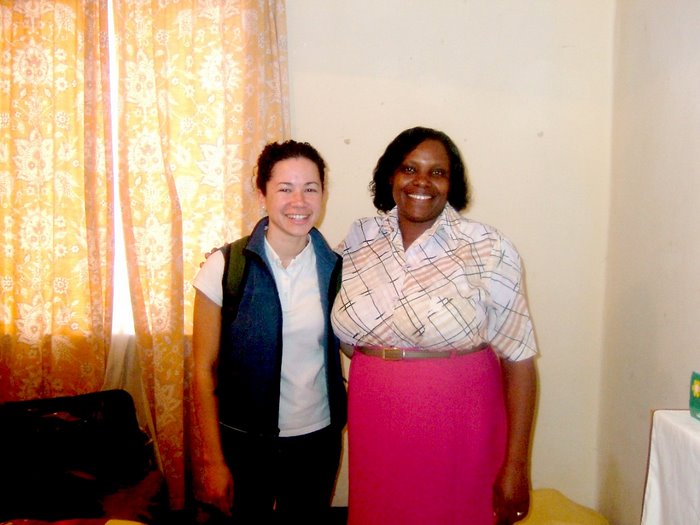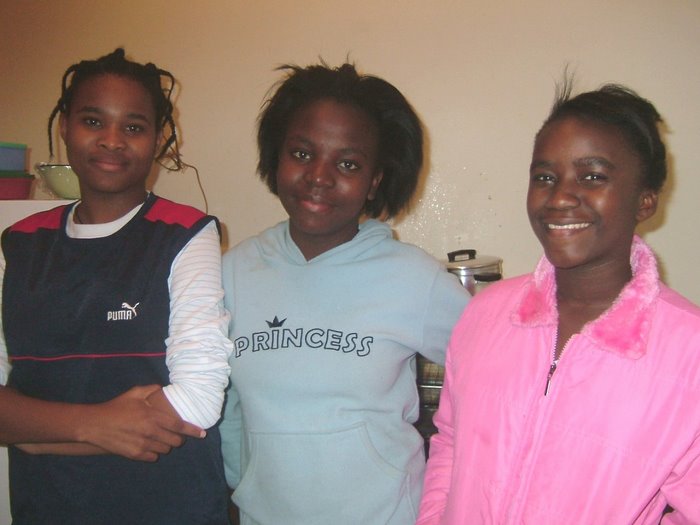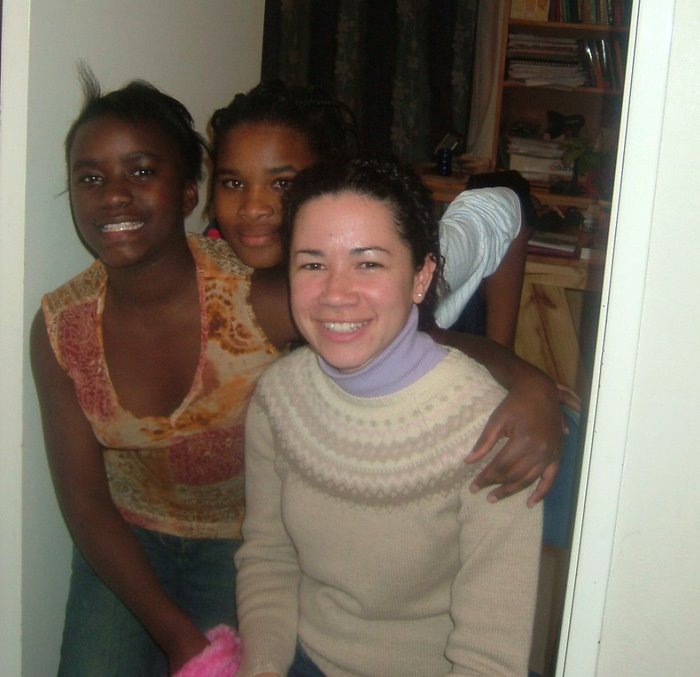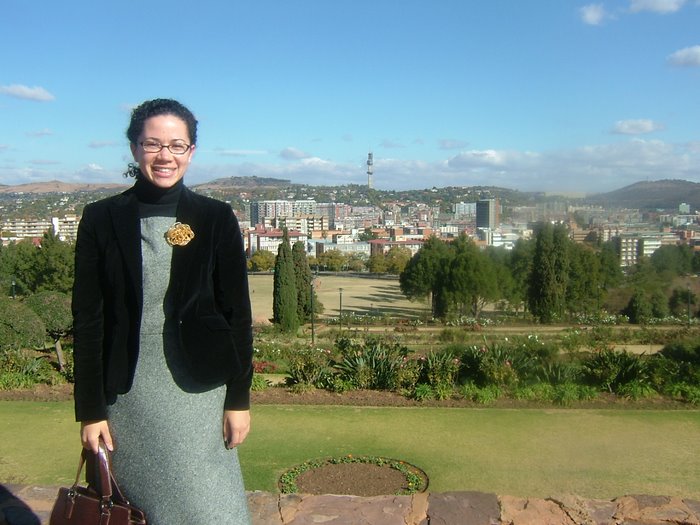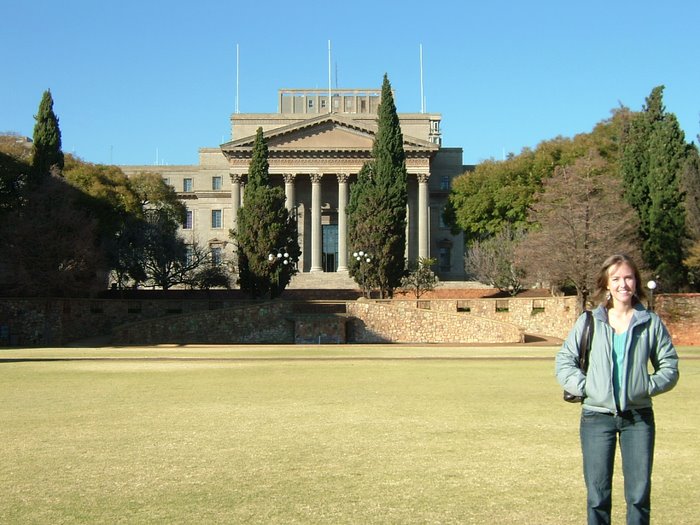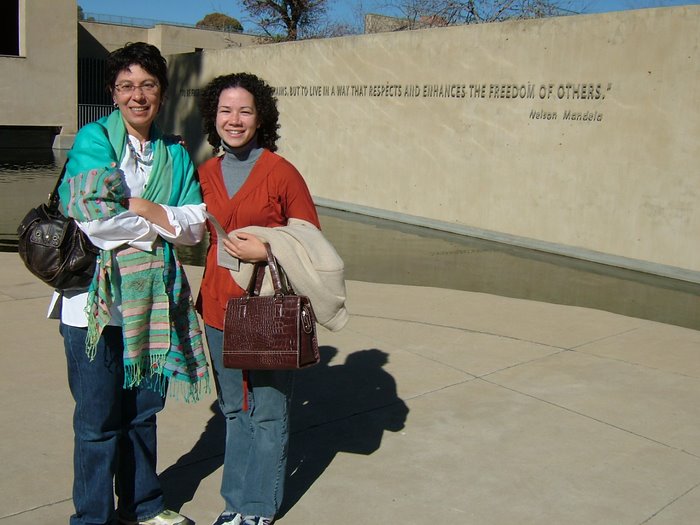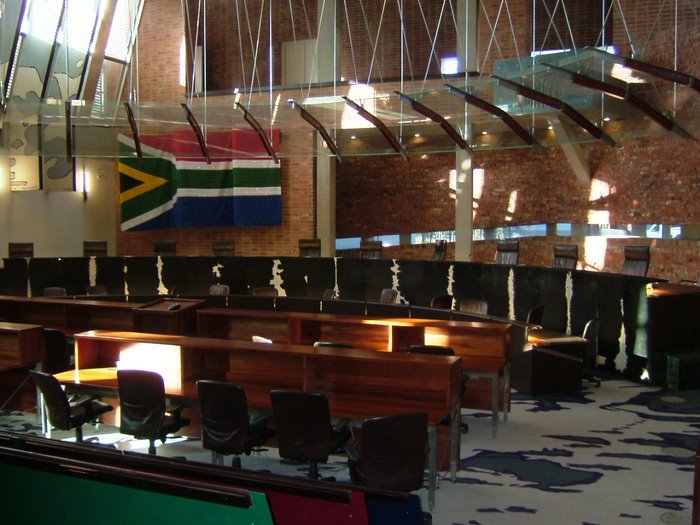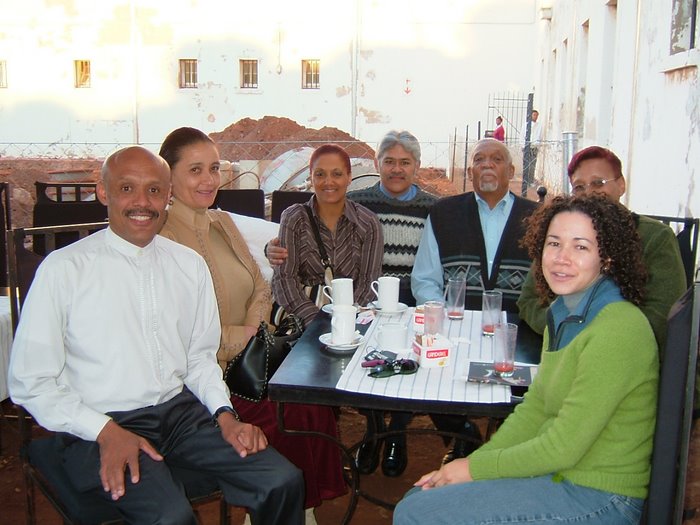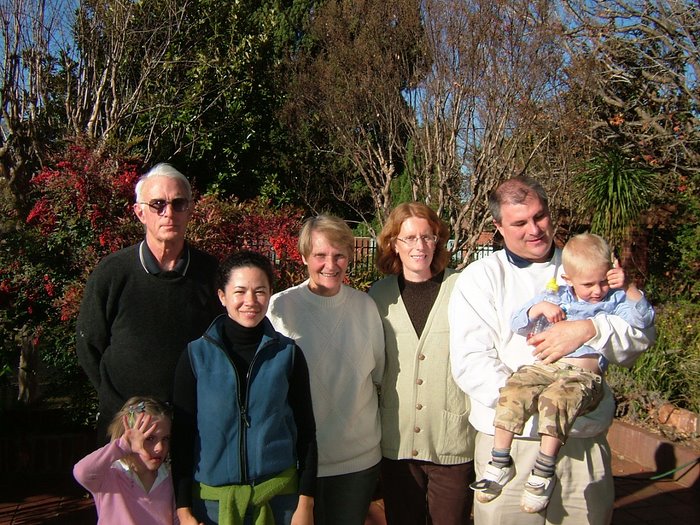Morning All,
Today is my 4th day at work, and I am settling in nicely. Since Monday, I have made 2 friends, Victoria and Ursula. Victoria started on the same day that I did, but she is not an intern. Rather she lives in Pretoria, just graduated from law school, and will be working here on a more permanent basis. She's very friendly, and she and her boyfriend are very big rugby fans. Interestingly, she has shared with me that while all people do not necessarily share a common sense of loyalty to their country (RSA), they are seriously loyal to their teams. She and her fiance' cheer for the Blue Bulls, and she has invited me to come to a game with them, but she says that to fit in, I must learn some Afrikaans cuss words :) http://en.wikipedia.org/wiki/Bulls_(rugby) Because Victoria is from Pretoria, she's familiar with the area, and took me to the old and new courthouse a few days ago. The new courthouse has a modern feel to it, built to accommodate several cases going on simultaneously. By comparison, the old courthouse is built for grandeur's sake, not for practical purposes. It houses only 4 or 5 courtroom, each of which are rather small (very tall ceilings, but not wide. There are just a few rows of seating in the back of the courtroom for observers, (maybe 3 rows). There's no jury box because they very infrequently use juries, but when a party does request a jury, they bring in seating. The room is painted white with a rosy carpet, columns gilded at the bottom, and thick, dark brown wood tables, chairs, judge bench, ... A very interesting curiosity is this hole in the floor in the back of the room. It is surrounded on all four sides by wood, and in this hole there are steps leading downstairs. Apparently, the courthouse used to be where they kept a good many of the prisoners who would walk up those stairs and *poof* they appeared in the courtroom. Victoria says that traditionally, they were not allowed to sit during the entire trail, but had to either stand in that box or at the podium when testifying. Victoria also shared with me that this courtroom we were looking at was where Nelson Mandela had been convicted. We then went downstairs to where the prison used to be. It still had the look of a prison with bars as doors, and a long corridor with rooms branching off, but it had been converted to storage for court transcripts and records. One of these rooms was where they hung prisoners post conviction.
My other friend at work is a woman named Ursula who is Indian, married, and very kind. She works in the same department as me, Refugee Rights, and has asked me to sit in on client interviews. She only started working here within the last year, so I think she remembers what it is like to be new in the office, and we have made plans to go to Johannesburg next weekend, and perhaps go to the theater or something. As for the work that I am doing ... I am now doing research on the most current information on human rights violations in different African countries. Previously, this might have seemed like busy work to me, but in context, this is the info. that LHR uses to build an asylum application case. For example, because of the wide media coverage and length of the crises in Sudan, applicants from that country have an easier time making a case for asylum. Again, when the genocide was taking place in Rwanda, my boss Paul says that people applying from there had a much easier time just getting their applications rubber-stamped. But what about those cases of persons who have legitimate fear of persecution from places where media attention has not been frequent? How are they to prove the validity of their claim? In this regard, the work of Human Rights Watch, the U.S. Dept. of Religious Freedom, etc. are critically important. They document specific instances of abuse in specific regions of the country, often citing the names of persons involved and charged. This then can be helpful for a making a case for a person in similar circumstances.
For those of you who are interested, here is what our client has to prove in order to be granted refugee status under the S.A. Refugees Act of 1998. They must demonstrate that they are:
1. outside of their home country
2. have a well-founded fear of persecution due to race, religion, nationality, political opinion, social membership, OR
3. whose life, safety, or freedom is threatened due to external aggression, occupation, foreign domination, or other events seriously disturbing public order.
As for my weekend plans, I'll be joining friends in Centurion (in-between Pretoria and Johannesburg) for church on Sunday and lunch afterwards. I met these friends through a friend at my church in Tuscaloosa. They will shortly be visiting the U.S., so I am traveling down to meet them for church and lunch afterwards.
I hoe you all are enjoying reading these interesting observations as much as I am enjoying having them.
Love, Kristian
Thursday, June 7, 2007
Monday, June 4, 2007
first day at work
So I was sitting in my office this morning at 10:00 a.m. (yes, I have my own office and computer with rather speedy internet connection) ... thinking to myself ... "I don't remember seeing a Starbuck's on the way into work this morning. And then I heard the rattling of dishes, and here came Veronica with the tea and coffee cart. Hot tea, with hot milk, a saucer full of sugar, and about 12 coffee mugs. Now this is plush :) Apparently the tea cart comes by every day at 10 a.m. and 3 p.m. I should mention that in addition to the coffee and tea, I had "Jungle Mix" for breakfast, which is granola with dried fruit that people eat with either juice or milk.
This morning I've been pouring through reading materials to try and catch up with the types of cases that LHR handles. Most interesting is a case I read about a student who was alleging discrimination on the basis of religion. Thinking back to my employment law class, I could think of 5 types of discrimniation prohibited by Title VII (race, color, religion, national origin, gender). U.S. case law would later elaborate on what exactly 'gender' encompassed, finding that it included discrimination on the basis of pregnancy. But courts have also found that discrimination on the basis of 'national origin' had not taken place when an employer, say, refused to hire a person who cannot speak the language fluently. The latter would be considered discrimination on the basis of language, which is permissible. So in short, in the U.S. Title VII's vague terms (gender) have been broadly interpreted to encompass several aspects of being female, but the courts have been stingier in interpreting 'national origin.'
In comparison, then, it was interesting to read that within the South African Constitution (as opposed to a separate piece of legislation that might more easily be repealed or modified) are listed not 5 but 17 categories of impermissible discrimination: race, gender, sex, pregnancy, marital status, ethnic or social origin, colour, sexual orientation, age, disability, religion, conscience, belief, culture, language and birth. Given that the RSA Constitution only took effect in 1997, just a decade ago, I thought perhaps they were trying to avoid similar legal battles as those in the U.S. fought to clarify potentially ambiguous terms like 'gender.' So instead of just prohibiting discrimination on the basis of gender, they explicitly prohibit discrimination on the basis of "gender, sex, pregnancy, [and] marital status." So they cover their bases on the front end, avoiding lengthy and expensive litigation.
This explanation [preventing confusion via clarification on the front end] doesn't seem to hold water, though, upon noting that the S.A. Constitution further includes terms like "birth." I don't know what that means yet, or how broad or narrow a concept it is. I have thus far only deduced that it is permissible to discriminate against the dead. I am also not certain at present whether these same prohibitions apply to private employers in the same way that Title VII does. These are questions I have to ask later. Nevertheless, the comparisons are interesting.
Today I was also asked by Ursula, the other atty. in the Migrant Rights Division to sit in on a client consultation, an exhausting experience given the language barriers. It took over 2 hours to ascertain this young man's history. The case involved a voluntary repatriation, and I will be working on those more in the immediate future. I suppose the hind-legs of the asylum-application process involves persons who have been denied refugee status, but who cannot afford to return to their country of origin, especially if it is in northern Africa. (We have clients from as far north as Ethiopia, Kenya, Sudan). UNHCR accepts applications and will provide transportation via plane if the grant your application and give you $1,000 (6,000 ZAR) starter-money.
Okay, that's enough for now. I have to purchase some power outlet things so that I can plug up my cell phone and computer at Lisa's home. And I have not yet purchased my cell phone but hope to do so today or tomorrow. So, don't expect to hear from me in the evenings, even using Skype, but after I get it set up, I will call. Love you all :)
This morning I've been pouring through reading materials to try and catch up with the types of cases that LHR handles. Most interesting is a case I read about a student who was alleging discrimination on the basis of religion. Thinking back to my employment law class, I could think of 5 types of discrimniation prohibited by Title VII (race, color, religion, national origin, gender). U.S. case law would later elaborate on what exactly 'gender' encompassed, finding that it included discrimination on the basis of pregnancy. But courts have also found that discrimination on the basis of 'national origin' had not taken place when an employer, say, refused to hire a person who cannot speak the language fluently. The latter would be considered discrimination on the basis of language, which is permissible. So in short, in the U.S. Title VII's vague terms (gender) have been broadly interpreted to encompass several aspects of being female, but the courts have been stingier in interpreting 'national origin.'
In comparison, then, it was interesting to read that within the South African Constitution (as opposed to a separate piece of legislation that might more easily be repealed or modified) are listed not 5 but 17 categories of impermissible discrimination: race, gender, sex, pregnancy, marital status, ethnic or social origin, colour, sexual orientation, age, disability, religion, conscience, belief, culture, language and birth. Given that the RSA Constitution only took effect in 1997, just a decade ago, I thought perhaps they were trying to avoid similar legal battles as those in the U.S. fought to clarify potentially ambiguous terms like 'gender.' So instead of just prohibiting discrimination on the basis of gender, they explicitly prohibit discrimination on the basis of "gender, sex, pregnancy, [and] marital status." So they cover their bases on the front end, avoiding lengthy and expensive litigation.
This explanation [preventing confusion via clarification on the front end] doesn't seem to hold water, though, upon noting that the S.A. Constitution further includes terms like "birth." I don't know what that means yet, or how broad or narrow a concept it is. I have thus far only deduced that it is permissible to discriminate against the dead. I am also not certain at present whether these same prohibitions apply to private employers in the same way that Title VII does. These are questions I have to ask later. Nevertheless, the comparisons are interesting.
Today I was also asked by Ursula, the other atty. in the Migrant Rights Division to sit in on a client consultation, an exhausting experience given the language barriers. It took over 2 hours to ascertain this young man's history. The case involved a voluntary repatriation, and I will be working on those more in the immediate future. I suppose the hind-legs of the asylum-application process involves persons who have been denied refugee status, but who cannot afford to return to their country of origin, especially if it is in northern Africa. (We have clients from as far north as Ethiopia, Kenya, Sudan). UNHCR accepts applications and will provide transportation via plane if the grant your application and give you $1,000 (6,000 ZAR) starter-money.
Okay, that's enough for now. I have to purchase some power outlet things so that I can plug up my cell phone and computer at Lisa's home. And I have not yet purchased my cell phone but hope to do so today or tomorrow. So, don't expect to hear from me in the evenings, even using Skype, but after I get it set up, I will call. Love you all :)
Subscribe to:
Comments (Atom)
